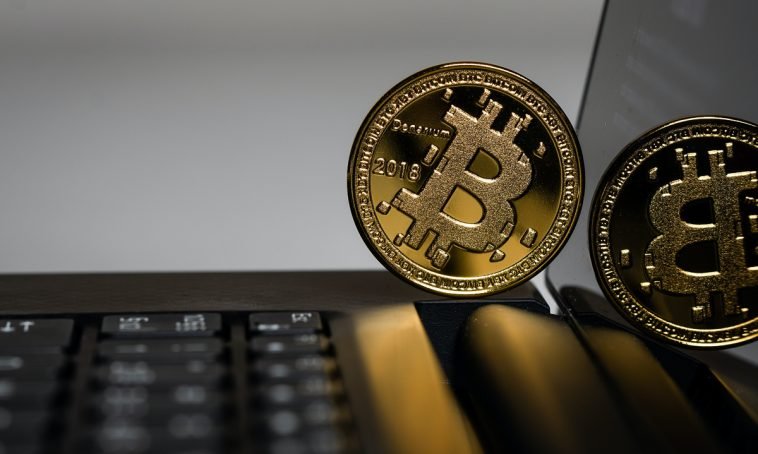Introduction.
Cryptocurrency is quickly becoming a popular way to save and transfer money. But before you can start buying Bitcoin or any other cryptocurrency, you need a wallet.
A cryptocurrency wallet is like a digital version of your regular wallet—it’s where you store your crypto safely.
Understanding how to register a cryptocurrency wallet is the first step to being part of this exciting digital finance world.
In this guide, I’ll break down everything you need to know about setting up your cryptocurrency wallet.
What Is a Cryptocurrency Wallet?
Think of a cryptocurrency wallet as a tool that stores your digital money. But instead of holding physical cash or cards, it stores something called “private keys.”
These keys are like secret passwords that give you access to your money on the blockchain (a secure, digital ledger).
There are two main types of wallets:
- Hot Wallets: These are connected to the internet and include mobile apps, desktop software, or web-based wallets. They’re convenient but can be more vulnerable to hacks.
- Cold Wallets: These are offline wallets, like hardware wallets or paper wallets, that provide extra security by keeping your private keys offline.
Both types are useful, but the right one for you depends on what you plan to do with your crypto.
Why Do You Need a Wallet?
A wallet isn’t just for storing your crypto—it’s how you send, receive, and manage your digital money. Without a wallet, you can’t buy, sell, or trade cryptocurrency.
For example:
- If you’re investing in Bitcoin or Ethereum, you’ll need a wallet to store your coins.
- If you’re planning to use crypto for shopping or payments, your wallet will help you make those transactions.
- And if you’re into NFTs (digital collectibles), many wallets let you store them too.
How Do I Register a Cryptocurrency Wallet?
Registering a cryptocurrency wallet is easy. It only takes a few minutes, and you don’t need any special tech skills. Here’s a step-by-step guide to help you:
Step 1: Decide on the Type of Wallet
Start by deciding if you want a hot wallet or a cold wallet. Hot wallets are better for beginners because they’re easy to set up and use. If security is your top priority, consider a cold wallet like a Ledger or Trezor hardware wallet.
Step 2: Choose a Wallet Provider
There are many wallet providers out there. Here are some popular ones to consider:
- Hot Wallets:
- MetaMask (great for Ethereum and NFTs)
- Trust Wallet (supports many cryptocurrencies)
- Coinbase Wallet (beginner-friendly)
- Cold Wallets:
- Ledger Nano S or X
- Trezor Model T
Research each option to find one that fits your needs. Most wallets are free to register, but hardware wallets may cost around $50 to $200.
Step 3: Download or Purchase the Wallet
For hot wallets, download the app or software from the official website or app store. Make sure it’s the legitimate version to avoid scams.
For cold wallets, purchase the hardware device directly from the manufacturer’s website to ensure it’s secure.
Step 4: Create Your Account
Follow these steps to set up your wallet:
- Open the app or plug in the device.
- Set up a password. Choose a strong, unique password that you won’t forget.
- Backup Your Seed Phrase. A seed phrase is a series of 12–24 words that acts as a backup to recover your wallet if you lose access. Write it down and store it somewhere safe—never share it with anyone.
Step 5: Add Funds to Your Wallet
Once your wallet is set up, you can add cryptocurrency by buying it from an exchange (like Binance, Coinbase, or Kraken) and transferring it to your wallet address. Each wallet has a unique address, like a bank account number, which you’ll use to receive funds.
Keeping Your Wallet Secure
Security is a big deal when it comes to cryptocurrency. Here are some tips to protect your wallet:
- Enable Two-Factor Authentication (2FA): This adds an extra layer of security.
- Avoid Sharing Your Private Key or Seed Phrase: These are like the keys to your house—keep them private.
- Use Secure Networks: Avoid public Wi-Fi when accessing your wallet.
- Regularly Update Your Wallet Software: This ensures you have the latest security features.
FAQs
1. Do I Need a Wallet for Every Cryptocurrency?
No, many wallets support multiple cryptocurrencies. Check the wallet’s compatibility list before choosing one.
2. What Happens If I Lose My Seed Phrase?
If you lose your seed phrase, you may permanently lose access to your wallet. That’s why it’s so important to back it up securely.
3. Can I Have More Than One Wallet?
Yes, you can have as many wallets as you like. Some people use separate wallets for different purposes (e.g., one for savings and another for daily transactions).
4. Is My Cryptocurrency Stored in the Wallet?
Technically, no. Your cryptocurrency exists on the blockchain. Your wallet simply gives you access to it using your private keys.
Conclusion
Setting up a cryptocurrency wallet is the first step toward exploring the exciting world of digital money.
It might seem complicated at first, but once you get started, it’s pretty simple. With a wallet, you can buy, sell, and manage your crypto securely.
What kind of wallet do you think suits you best—a hot wallet for convenience or a cold wallet for security? Let me know what you decide!





GIPHY App Key not set. Please check settings